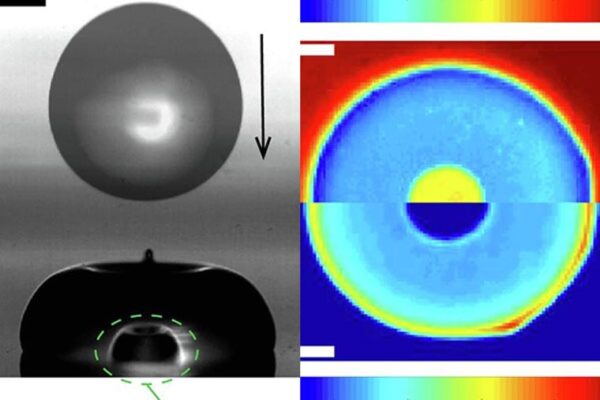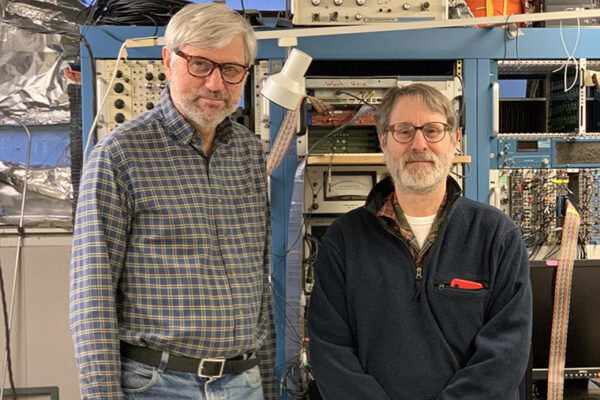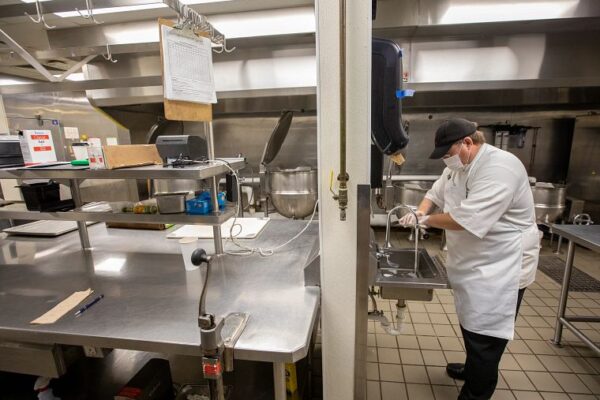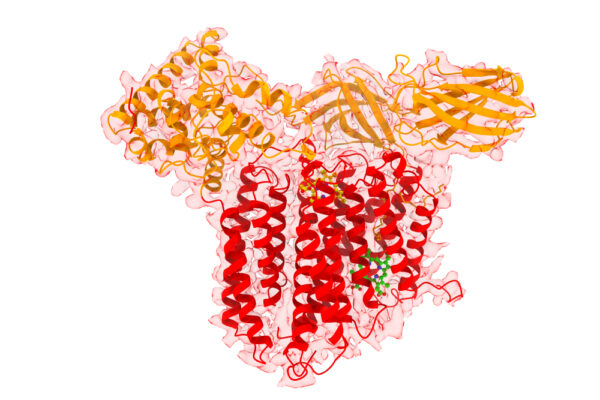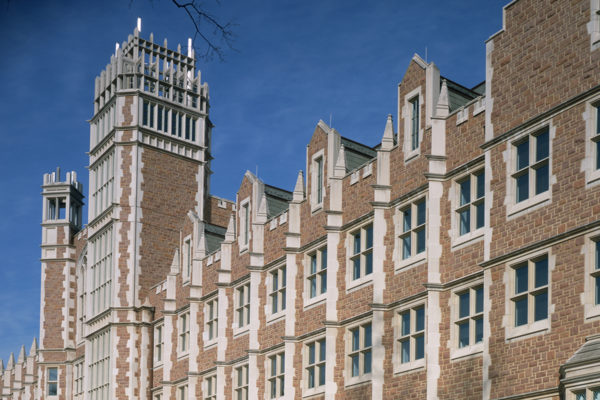Heat conduction important for droplet dynamics
A team of engineers at the McKelvey School of Engineering found that conduction of heat plays a larger role than previously thought in the dynamics of droplets on smooth surfaces that repel water.
Scientists detect world’s lightest magnesium
A new isotope of magnesium — magnesium-18 — was discovered by a team that includes Robert Charity, research professor of chemistry, and Lee Sobotka, professor of chemistry and of physics, both in Arts & Sciences, as reported in the journal Physical Review Letters.
Growing algae outside of wastewater
Zhen (Jason) He, professor at the McKelvey School of Engineering, has cleaned up the process for using wastewater to grow algae.
Understanding features that help cells stay organized
Work from the lab of Rohit Pappu at the McKelvey School of Engineering and colleagues at St. Jude continues to reveal novel findings about phase separation, the process cells use for organization.
A pathway emerges
Scientists at Washington University in St. Louis described for the first time the structure of a bifunctional protein, called CcsBA, that transports heme and attaches it to cytochromes. The study led by Robert Kranz, professor of biology in Arts & Sciences, captured two conformational states of CcsBA, a bacterial and chloroplast protein, allowing researchers to characterize the enzyme mechanism.
International team finds new mechanism critical for formation of membrane vesicles
A collaboration between Washington University in St. Louis, Université de Montréal and McGill University discovers a new importance of biomolecular condensates.
Mitigating environmental impact of herbicides
Research from the lab of Kimberly Parker at the McKelvey School of Engineering looks at the interactions of different herbicides and what they mean for herbicide drift.
Three psychology students recognized for their work
Three students in psychological and brain sciences in Arts & Sciences were honored for their research.
Vierstra receives NIH grant
Richard Vierstra, the George and Charmaine Mallinckrodt Professor of Biology in Arts & Sciences, received a $62,707 supplemental grant from the National Institutes of Health (NIH) in support of his phytochrome research.
Levin wins NIH grant
Petra Levin, professor of biology in Arts & Sciences, received an $84,616 equipment supplement from the National Institutes of Health (NIH) to purchase a new chromatography system.
Older Stories
